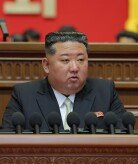Seoul, Beijing to Begin Second Rice Negotiation on June 18
Seoul, Beijing to Begin Second Rice Negotiation on June 18
Posted June. 16, 2004 21:08,
Rice negotiations, which will determine whether or not the domestic rice market will be opened to the world, are heading into the second round as the second Korea-China Rice negotiation begins on June 18.
The Ministry of Agriculture and Forestry and the Ministry of Foreign Affairs and Trade decided on June 16 to dispatch a negotiating delegation to Beijing, where the negotiation will take place, with Lee Jae-kil, negotiating ambassador of the Doha Development Agenda (DDA) as head of delegation. The delegation is also scheduled to attend the second Korea-U.S. negotiation, which will take place in Geneva, Switzerland on June 22.
The government will arrange detailed meeting schedules within this month, with the seven remaining countries, including Thailand and Australia, which made their intent clear to renegotiate trade of rice with Korea, after discussion with those countries.
The Korean delegation is expecting that rice exporters will make specific demands regarding the Minimum Market Access (MMA) amount that Korea must import or days of grace for the imposition of tariffs (the policy which maintain controls over the amount of rice imports while freeing imports of agriculture products) at the second negotiation.
Kim Joo-soo, vice-minister of the Ministry of Agriculture and Forestry, said We basically will stick to the postponement of an imposition of a tariff, but the government may consider shifting to an imposition of a tariff for national interests if rice exporters demands go up.
The rice renegotiation is taking place because Korea was allowed to postpone the imposition of a tariff for 10 years starting from 1995, instead of having to import rice under an MMA contract each year, when conducting Uruguay Round (UR) negotiations with World Trade Organization (WTO) member countries in 1993. The government needs to complete the negotiation by the end of this year since it is nearing the end of its grace period for imposition of tariffs.
Jin-Hup Song jinhup@donga.com






![한그릇 1만5000원 봄동비빔밥 ‘품절’…제2의 두쫀쿠?[요즘소비]](https://dimg.donga.com/c/138/175/90/1/wps/NEWS/IMAGE/2026/02/27/133437451.3.jpg)
